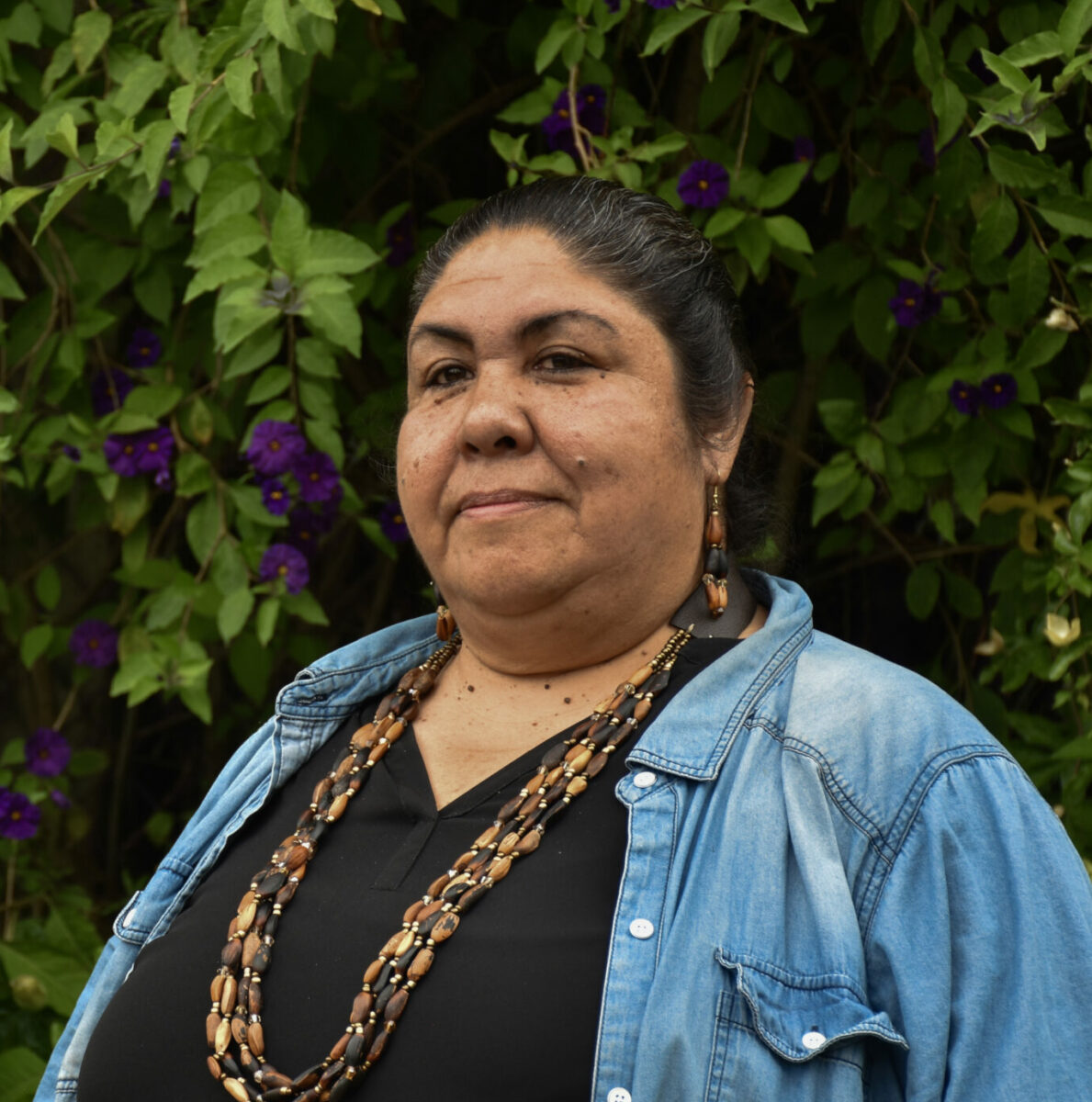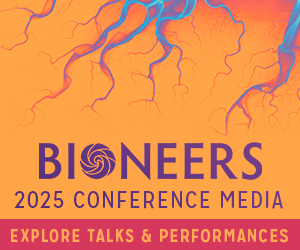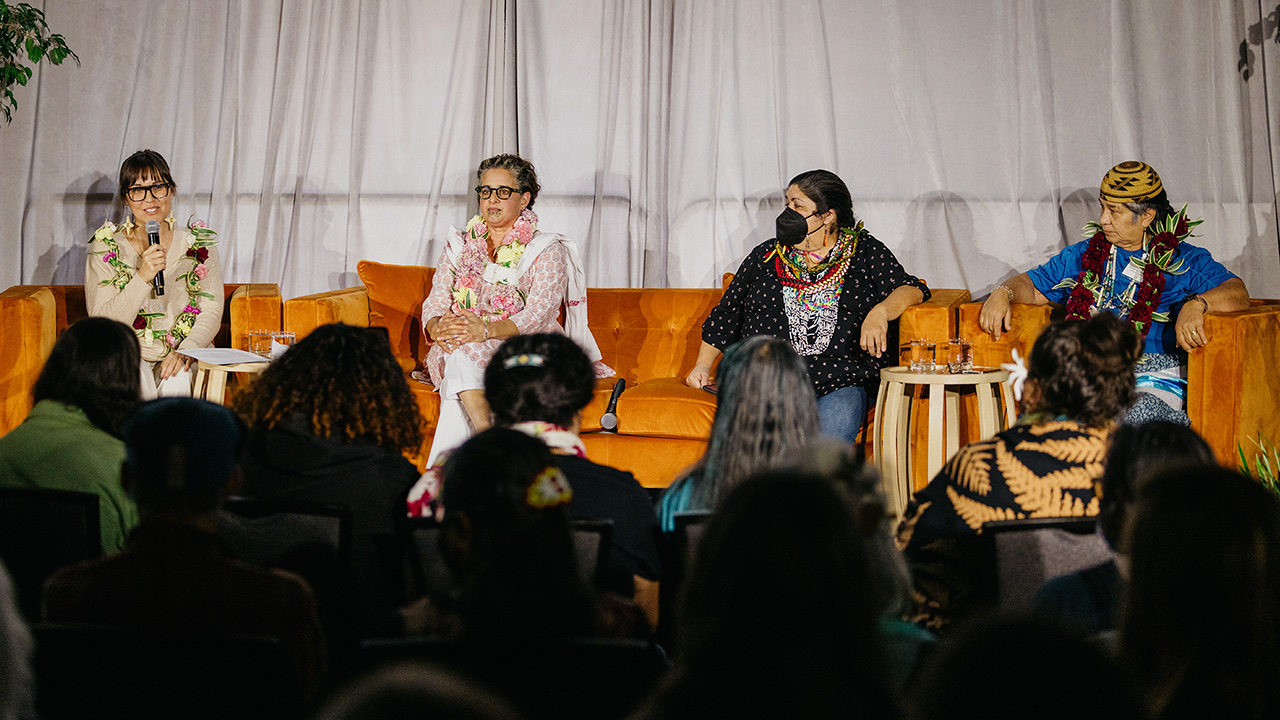Corrina Gould – Resilience and Rematriation
Bioneers | Published: May 6, 2025 IndigeneityWomen's Leadership Video
Corrina Gould, tribal spokesperson for the Confederated Villages of Lisjan and Director of the Sogorea Te’ Land Trust, greets attendees to her ancestral homeland, the territory of Huchiun. In her opening welcome, Gould reminds us of the brutal history of genocide and cultural erasure faced by Indigenous Californians, but also shares their powerful resilience and the ongoing rematriation, cultural revitalization and land restoration efforts underway to heal and transform the legacies of colonization and to do the work our ancestors and future generations are calling us to do.
This talk was delivered at the 2025 Bioneers Conference.

Corrina Gould, born and raised in the village of Huichin (now known as Oakland CA), is the Tribal Chair for the Confederated Villages of Lisjan Nation and co-founded and is the Lead Organizer for Indian People Organizing for Change, a small Native-run organization; as well as of the Sogorea Te’ Land Trust, an urban Indigenous women-led organization within her ancestral territory. Through the practices of “rematriation,” cultural revitalization and land restoration, the Land Trust calls on Native and non-Native peoples to heal and transform legacies of colonization and genocide and to do the work our ancestors and future generations are calling us to do.
EXPLORE MORE
Indigenous Forum – Rematriation: Indigenous Women’s Leadership
Corrina Gould, Caleen Sisk and Jessica Hutchings, three powerful Indigenous women, share “real-life” examples of rematriation, the ripple effects of these practices, and ways that we can all get involved to Indigenize the future.
California Genocide and Resilience with Corrina Gould
California Indians have survived some of the most extreme acts of genocide committed against Native Americans. In this episode of Indigeneity Conversations, we discuss this brutal history and survivance with Corrina Gould, Co-Founder and Co-Director of the Sogorea Te’ Land Trust. We talk about the importance of addressing that historical trauma, which caused deep wounds that still affect Indigenous Peoples today.


